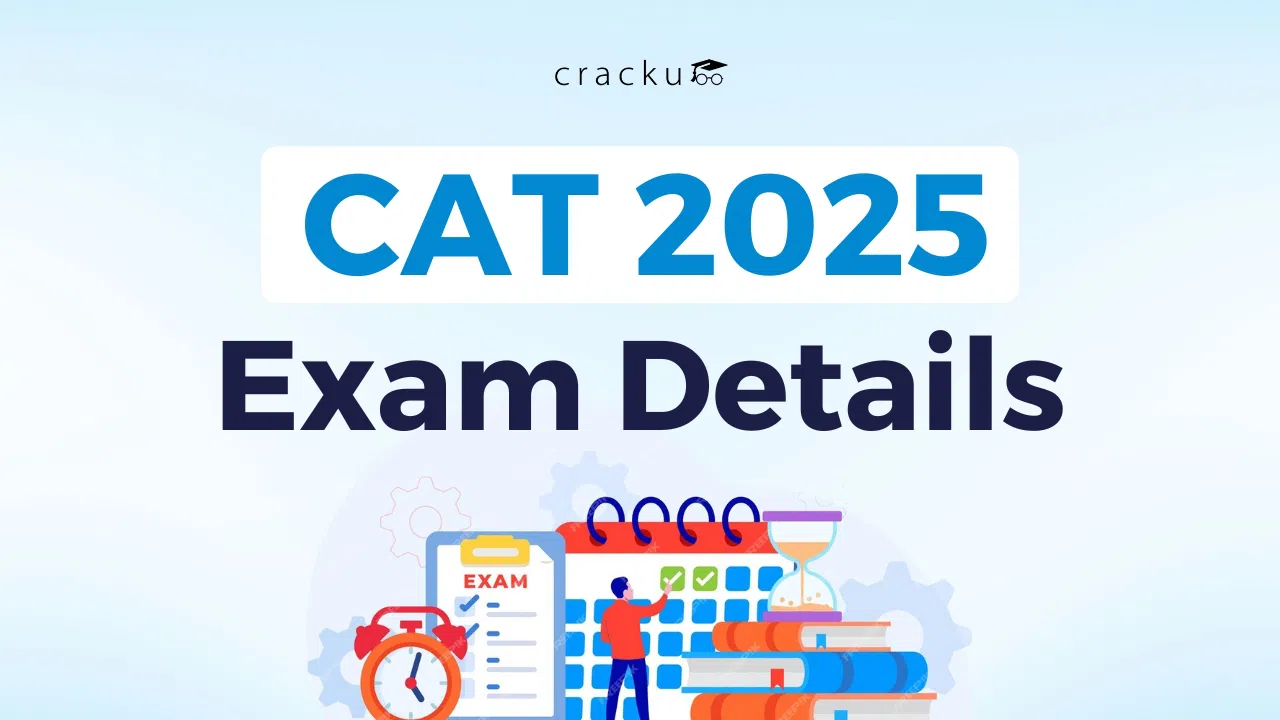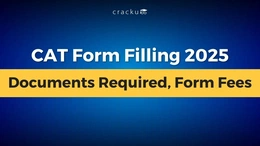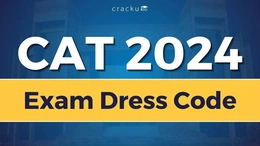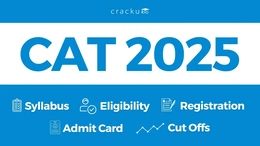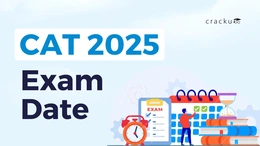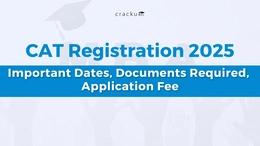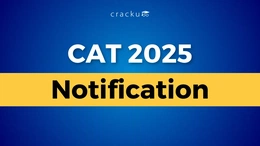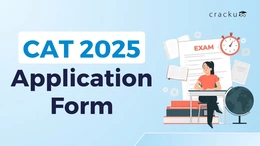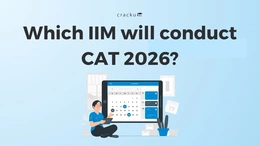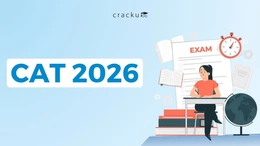CAT Exam Details
The Common Admission Test (CAT) 2025 is an important national-level entrance exam for aspirants aiming to secure admission into prestigious management programs offered by the Indian Institutes of Management (IIMs) and other top MBA colleges across India. Here's a comprehensive overview of the CAT 2025 exam, including its conducting body, registration details, important dates, eligibility criteria, and application process.
CAT Exam Date
The CAT exam is conducted once a year and is a crucial milestone for aspirants seeking admission into premier management institutes in India. It is important to stay updated with the official dates for registration, exam day, and result announcements to ensure timely preparation and application. Below is the tentative schedule for CAT 2025 to help you plan accordingly.
Event | Expected Date |
Notification Release | 29th July 2025 |
Registration Starts | 1st August 2025 |
Registration Ends | 20th September 2025 |
Application Correction Window | 23rd September 2025 |
Admit Card Release | 20th November 2025 |
30th November 2025 (Sunday) | |
Answer Key Release | 5th December 2025 |
Result Announcement | 20th December 2025 |
Also Read, CAT Exam Syllabus 2026, Section-wise Pattern, Download PDF
CAT Exam Eligibility
To appear for the CAT exam, candidates must meet certain eligibility criteria related to their educational qualifications and academic performance. There are no age limits, making the exam accessible to a wide range of candidates from diverse academic and professional backgrounds. Below is a summary of the key eligibility requirements for CAT 2025.
CAT Age Limit
There is no minimum or maximum age limit to apply for the CAT exam. The only academic requirement is that the candidate must hold a bachelor’s degree with the required percentage:
Age Limit Type | CAT 2025 Criteria |
Lower Age Limit | Not Applicable |
Upper Age Limit | Not Applicable |
CAT Educational Qualification
To be eligible for CAT 2025, candidates must meet the following academic requirements:
- Must hold a bachelor’s degree with:
- At least 50% marks or equivalent CGPA (for General, EWS, and NC-OBC categories).
- At least 45% marks or equivalent CGPA (for SC, ST, and PwD categories).
- Degree must be awarded by a recognized university or institution (as incorporated by an Act of Parliament, State legislature, or deemed to be a university).
- Candidates who have completed professional qualifications like CA/CS/ICWA/CMA or are Fellows of the Institute of Actuaries of India (FIAI) are also eligible, provided they meet the percentage requirements.
CAT Eligibility for Final-Year Students
Final-year undergraduate students can apply for CAT 2025, subject to the following conditions:
- They must complete all degree requirements before the date specified by the IIMs.
- A certificate from the Registrar/Principal of their university or college must be submitted, confirming completion of all requirements (issued on or before the specified date).
- Provisional admission will be granted, pending document verification at later stages.
CAT Eligibility for Engineering and Non-Engineering Students
- Engineering Graduates: Eligible with a minimum of 50% marks (45% for SC/ST/PwD). Final-year engineering students can also apply, provided they submit documents by the deadline (usually July 31).
- Non-Engineering Graduates: Candidates from all academic streams (Commerce, Arts, Science, Humanities, etc.) are eligible, provided they meet the degree and marks requirements.
CAT Eligibility for Working Professionals
- Work experience is not mandatory to apply for the CAT exam.
- Both fresh graduates and professionals with work experience are eligible.
- Work experience may be considered during later admission stages by IIMs, but it has no impact on CAT eligibility.
Also Check, CAT 2025 Syllabus PDF, Download Section-wise Syllabus PDF
CAT Exam Reservation Policy
CAT follows the Government of India’s reservation policy to ensure fair access to education across all sections of society.
Category | Reservation (%) |
General (Unreserved) | 35.5% |
Scheduled Caste (SC) | 15% |
Scheduled Tribe (ST) | 7.5% |
Other Backward Classes – NC-OBC | 27% |
Economically Weaker Sections (EWS) | 10% |
Persons with Benchmark Disabilities (PwD) | 5% |
PwD Criteria Includes:
a) Blindness and low vision
b) Deaf and hard of hearing
c) Locomotor disability (cerebral palsy, leprosy cured, dwarfism, acid attack victims, muscular dystrophy)
d) Autism, intellectual disabilities, specific learning disabilities, mental illness
e) Multiple disabilities as defined under clauses (a) to (d)
f) Other specified disabilities under the RPwD Act, 2016
CAT Exam Syllabus
The CAT exam syllabus covers three major sections designed to evaluate a candidate’s aptitude across verbal, quantitative, and logical domains. These sections test critical reasoning, problem-solving skills, and data interpretation ability. Below is a detailed breakdown of the syllabus for each section:
Section | Key Topics Covered |
Verbal Ability & Reading Comprehension (VARC) | Reading comprehension, para jumbles, sentence completion, vocabulary, grammar, verbal reasoning |
Data Interpretation & Logical Reasoning (DILR) | Data sets, graphs, tables, puzzles, seating arrangement, charts, logical puzzles |
Quantitative Ability (QA) | Arithmetic, algebra, geometry, number system, modern math, percentages, ratios, time & work |
Also Check, CAT Exam Syllabus 2025, VARC, DILR, QA Important Topics
CAT Exam Pattern
The CAT exam is structured each year by the administering body to assess a candidate’s proficiency in problem-solving, reasoning, and mathematical aptitude. The exam is divided into three key sections: DILR (Data Interpretation & Logical Reasoning), VARC (Verbal Ability & Reading Comprehension), and QA (Quantitative Aptitude).
- The VARC section consists of 24 questions, carrying a total of 72 marks.
- The DILR section includes 22 questions, with a total weightage of 66 marks.
- The Quantitative Aptitude (QA) section also contains 22 questions, worth 66 marks in total.
CAT Exam Section-Wise Pattern (Tentative)
Section | MCQs | Non-MCQs (TITA) | Total Questions | Time Allotted |
Verbal Ability & Reading Comprehension (VARC) | 22 | 2 | 24 | 40 minutes |
Data Interpretation & Logical Reasoning (DILR) | 12 | 10 | 22 | 40 minutes |
Quantitative Ability (QA) | 14 | 8 | 22 | 40 minutes |
Total | 48 | 20 | 68 | 120 minutes (2 hours) |
CAT Exam Sectional Time Allocation
CAT Exam Sections | Sectional Time Limit |
Verbal Ability and Reading Comprehension (VARC) | 40 minutes |
Quantitative Ability (QA) | 40 minutes |
Data Interpretation and Logical Reasoning (DILR) | 40 minutes |
Total Duration | 120 minutes |
Also Check, CAT Exam Pattern 2025, Marking Scheme, Duration, Structure
CAT Exam Duration
The CAT exam is carefully structured to test candidates across three key sections, each with a fixed time limit. Understanding the duration allocated to each section can help you plan your time management strategy effectively during the exam. Below is the detailed breakdown of the CAT exam duration and sectional time limits:
Parameter | Details |
Total Exam Duration | 120 minutes (2 hours) |
Sectional Time Limit | 40 minutes per section |
Number of Sections | 3 (VARC, DILR, QA) |
CAT Exam Fees
Before applying for the CAT exam, candidates need to pay a registration fee. The fee varies based on the candidate’s category, with concessions provided for reserved categories. The fee is non-refundable and must be paid online through various payment methods. Below is a detailed breakdown of the CAT exam registration fees for different categories.
Candidate Category | Registration Fee |
General, EWS, NC-OBC | ₹2,500 |
SC, ST, PwD | ₹1,250 |
CAT Exam Details: Conclusion
The CAT 2025 exam is a gateway to securing admission into the prestigious IIM colleges and other top B-schools in India. With no age limit and eligibility open to both fresh graduates and working professionals, CAT offers a fair chance to all aspirants. Make sure to stay updated on the official CAT 2025 dates, registration process, and syllabus to plan your preparation effectively and boost your chances of success.
Whether you are an engineering graduate, non-engineering student, or working professional, CAT 2025 is your opportunity to take a step closer to your MBA dream. Focus on mastering the CAT syllabus, understanding the exam pattern, and practicing time management during mocks. Keep an eye on official updates, follow a strategic study plan, and aim high for admission into India’s best management institutes.
